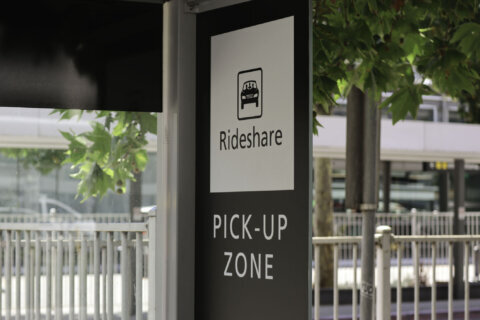Restrictions on U.S. travel to Cuba have been eased recently, meaning it’s a lot easier for Americans to visit the Caribbean country. But many people are under the impression that you can only visit by joining an organized tour. Not so — you can join an organized group or cruise ship. But you can also plan a solo trip (and save a good chunk of money in doing so). Here are eight common questions about visiting Cuba without a tour group and tips for navigating Cuba on your own.
[Read: 9 Things to Know to Improve Your Safety When Traveling Oversees.]
What do I need to travel to Cuba without a group?
The bare essentials for Cuba travel from the U.S. include your passport, visa, medical insurance (usually included in your plane ticket) and cash (more on that later). You’ll also need to show proof of a place to stay, and should do most of your research up front, as internet access isn’t always easy to come by once you’re on the ground.
How do I get a visa?
Under the new visa restrictions there are 12 official reasons American citizens can visit Cuba. These range from family visits to journalistic or educational activity (the full list is available here). While authorities may not appear to be closely monitoring your activity to match it to your visa during or after the trip, you should document your itinerary and activities that are related to your visa purpose. Now that many airlines have direct flights to Cuba, the visa process is built into the ticket purchasing process. Keep in mind, you will have to purchase a visa, and you may receive it by mail, so plan ahead. Airlines may partner with a visa provider (American Airlines works with Cuba Travel Services, for example), who will contact you about purchasing the visa.
How do I book an airline ticket to Cuba?
If you’re flying on a major airline, the process is the same as booking a ticket to anywhere else (as long as you book directly with the website). You’ll be asked about the visa requirements and will be prompted to confirm that you meet one of the approved visas. At this time, online travel agencies such as Expedia or Booking.com are not offering accommodations and flights to Cuba.
[See: 10 Outrageous Travel Fees Every Traveler Should Know About.]
Do I need anything special to clear customs when I return to the U.S.?
When departing from Cuba, you’ll have to go through customs and hand over a form provided upon arrival, so keep it in your passport or somewhere else safe. It’s recommended that you keep records of what you did and where you stayed. Once back in the U.S., the customs process is fairly standard, especially if you have a digital passport or Global Entry. Keep in mind you may have to go through security again after customs before any connecting flights; there have been cases of TSA officials not letting duty-free rum from the airport through customs.
What do I need to bring to Cuba?
First and foremost, bring cash. You cannot use American credit cards or ATM cards in Cuba, so you need to bring all the money you’ll need and then some for emergencies. There are two forms of local currency; tourists deal mostly in the Cuban convertible peso. You can exchange U.S. dollars to pesos at the airport or at exchange houses in most cities. Keep in mind there’s a 10 percent fee to exchange U.S. dollars, but there’s no fee to change Canadian dollars or euros.
Aside from cash, bring anything you might need day-to-day. You can’t pop into a convenience store as easily as you can in the U.S., so pack all toiletries, medicines such as painkillers and anti-nausea pills, first-aid items, sunscreen and Kleenex or a small amount of toilet paper. Consider also bringing some extra clothes, makeup and bath products or pens, as American brands are not available in the country and these items make nice gifts for lodging hosts.
Where do I stay in Cuba?
There are plenty of hotels in Cuba. After all, the country has been a tourist destination for travelers from other countries for years. However, the quality and amenities, in many cases, are not on par with what many Americans are used to. A few American chains, including Starwood, have recently opened hotels in Havana.
If you’re traveling on a budget or want a more locally driven experience, opt to stay in a casa particular. These bed-and-breakfast type accommodations put you in a home with a Cuban family. Many of these are now available on Airbnb, which can be a good way to book in advance and pay by credit card (otherwise you’ll have to pay in cash). Casa particulars are plentiful, so if you prefer flexibility you can arrive and look for houses with a white sign and blue symbol. If the house doesn’t have room, they’ll likely be able to recommend other houses that do.
Do I need to speak Spanish?
A number of Cubans speak English, but a number speak none at all. If you’re traveling on your own without an organizer, you’ll need a basic understanding of conversational Spanish. This will let you communicate with casa particular owners, taxi drivers and others and is particularly helpful if your travel doesn’t go according to plan.
[Read: 5 Ways to Avoid Unnecessary Travel Fees When Traveling Abroad.]
What’s the deal with internet and cellphone service?
If you have a major U.S. cellphone carrier such as AT&T or Verizon, your phone may have service in larger cities and towns. Roaming services can get quite expensive, however, along with addition fees for text messages and and voice calls. As for internet, you’ll be able to purchase prepaid timed Wi-Fi cards at some upscale hotels and Etecsa service shops. Happily, some public spaces are opening up Wi-Fi hotspots; if you purchase an Etesca card, you will be able to log on.
More from U.S. News
The Biggest Travel Trends to Watch in 2017
7 Things You Must Know Before Traveling Solo
Everything You Need to Know About Traveling to Cuba This Year
How to Travel to Cuba Without a Tour Group originally appeared on usnews.com







